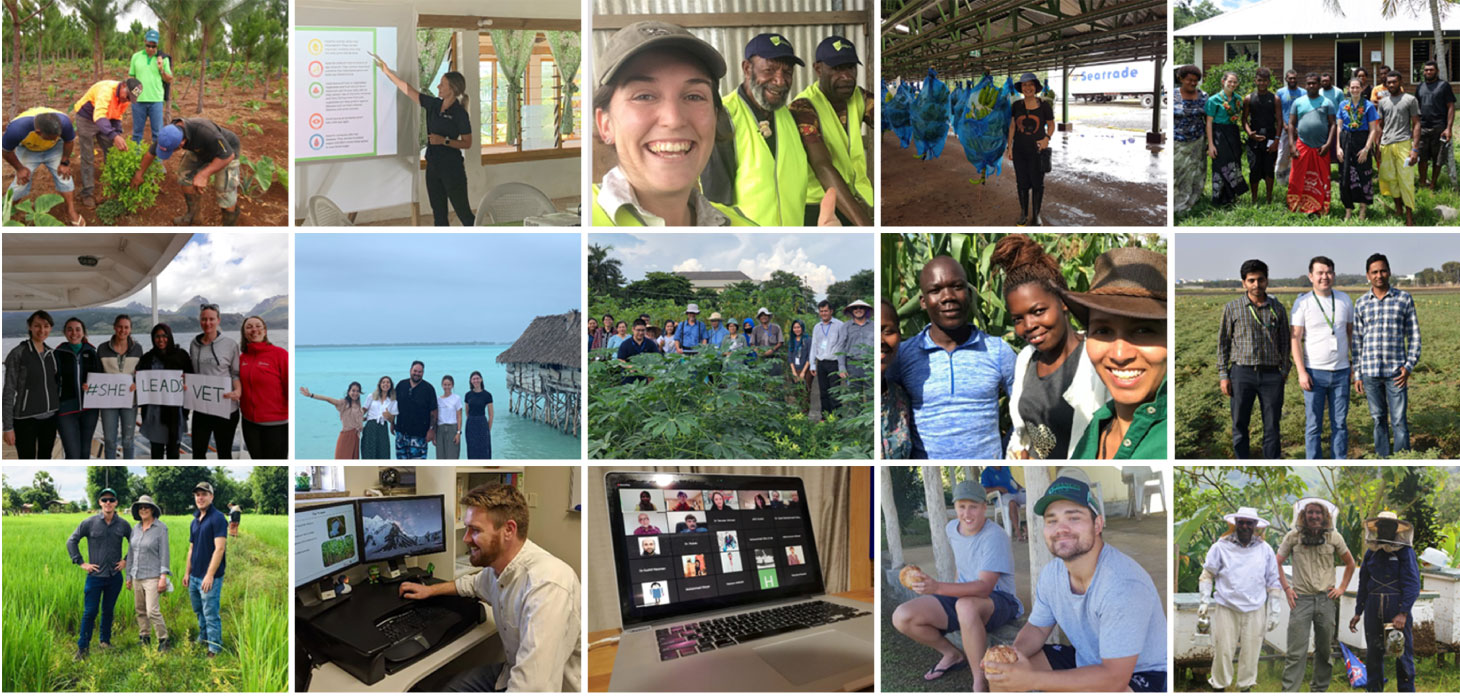

Quick Year in Review 2019-2020: Why invest in overseas agricultural R&D in a pandemic?
September 28, 2020

From our Chair and CEO
2019-20 has been a year unlike any other in the more than 30 year history of the Crawford Fund. Our public awareness, training, RAID Network and NextGen activities were prospering until March. The COVID-19 pandemic, whilst halting all of our physical overseas activities, will undoubtedly impact food security in many of the countries we work in for years to come, making our mission more important than ever. As the world slowly emerges from the impacts of the pandemic, the need for overseas aid will increase in our region to support the most severely affected communities. Our view is that aid in the form of agricultural research and development investment is money well spent. It enables communities to increase food production, profitability and resilience that lead to sound social, educational and environmental outcomes that have a high positive benefit, especially for women and children who are often the most severely impacted. Furthermore, overseas aid spent in supporting the international research centres and on a bilateral basis returns a benefit to Australia in terms of access to improved knowledge and crop varieties for greater production at home, more effective biosecurity vigilance networks and a variety of soft power benefits that are of growing importance in this globalised world.
The pandemic has significantly altered how we do business. After ensuring all trainers, mentors, student awardees and volunteers working with us had been safely repatriated, our attention had to turn to two key issues. The first of these was considering how we maintain operations while international and domestic travel restrictions remained and secondly, to where we can focus future investment and support to maximise beneficial outcomes. With respect to domestic operations, whilst Central Office was temporarily closed and staff worked from home, we have continued to operate effectively via web-based video-conferencing. We have also turned out attention to improving some of our internal administrative processes. Planning and material preparation to support the ACIAR funded NextGen program has continued apace, with the development of high school curricula materials underway and lots of online events, blogs and videos to highlight the opportunities and impact of agriculture for development. Similarly, the RAID Network has turned to holding well subscribed webinars.
In terms of future investment, the pandemic has highlighted a number of risks to health and food security. Growing scientific information suggests that zoonotic diseases (diseases that cross the species barrier between animals and humans) like COVID-19, SARS, MERS and Ebola, have a high probability of occurrence over future decades. A key reason for this is that increasing human population density is impacting natural environments and creating circumstances where wild and domestic animals are in close contact with humans. Habitat destruction similarly impacts severely the provision of ecosystem services, which are vital to our health. These include supplies of fresh and clean water; the loss of forests, other natural vegetation and soil carbon that increase water infiltration and reduce flooding; pollination services from insects and mammals, and losses of estuarine and coastal fisheries habitat. In our view, these issues highlight the need for research and development led vigilance of biosecurity risks and for further emphasis on sustainable intensification of agriculture that seeks to increase production on existing agricultural land and conserves other land for provision of the critical ecosystem services described above. Furthermore practices that increase soil carbon and thus soil fertility will also have potential benefits in mitigating climate change. We consider that embracing the “One Health” approach which views human and animal health, agriculture and the environment as a continuum is a critical way forward for the Fund in the light of these growing biosecurity and environmental risks.
Given the above critical factors, in addition to public awareness activities to draw attention to these issues, we have constituted two working groups focusing on biosecurity and sustainable intensification. Whilst the former of these aims to highlight issues and risks that the Australian Government should be aware of and respond to, it will also bolster our training plans into the future, and improve the agenda for our Annual Conference on “Food & Nutrition Security – The Biosecurity, Health, Trade Nexus,” planned for August, 2020, but now postponed to August, 2021. The Sustainable Intensification Working Group is focusing on the development of a new Master Class that will focus on how the entire food supply chain, from the natural resource base to the consumer, needs to be considered through this key lens. It is intended that this Master Class will contribute to our alliance with ACIAR and the Syngenta Foundation, building on some of its earlier key work in Africa with lessons and work further afield.
We are also developing an e-mentoring program to ensure that we continue to help develop the technical and organisational skills and expertise of agricultural researchers, scientists and policy makers in developing countries. The program will build on the successful outcomes of our long term existing Mentoring Program and the Fund’s conference scholar mentoring program, matching young NextGen researchers with experienced Australians who attend our conference. We encourage the Crawford Fund network to volunteer a small amount of their time and their extensive expertise to this effort.
Finally, we are acutely aware that the pandemic impacts have profoundly affected opportunities for young Australians to conduct overseas fieldwork with their Crawford Fund student awards, for our mentors and volunteers to continue their important work, for our journalist visits to continue, as well as for overseas colleagues to personally attend training and Master Classes organised by the Fund. As soon as travel restrictions lift, we have plans in train for us to get back to these activities. Consequentially, we are carrying forward monies unspent on these activities with the aim of increasing opportunities for this key work as soon as it is safe to travel.
 The Hon John Anderson AOChair, Crawford Fund
|
 Dr Colin ChartresCEO, Crawford Fund
|




 0
0